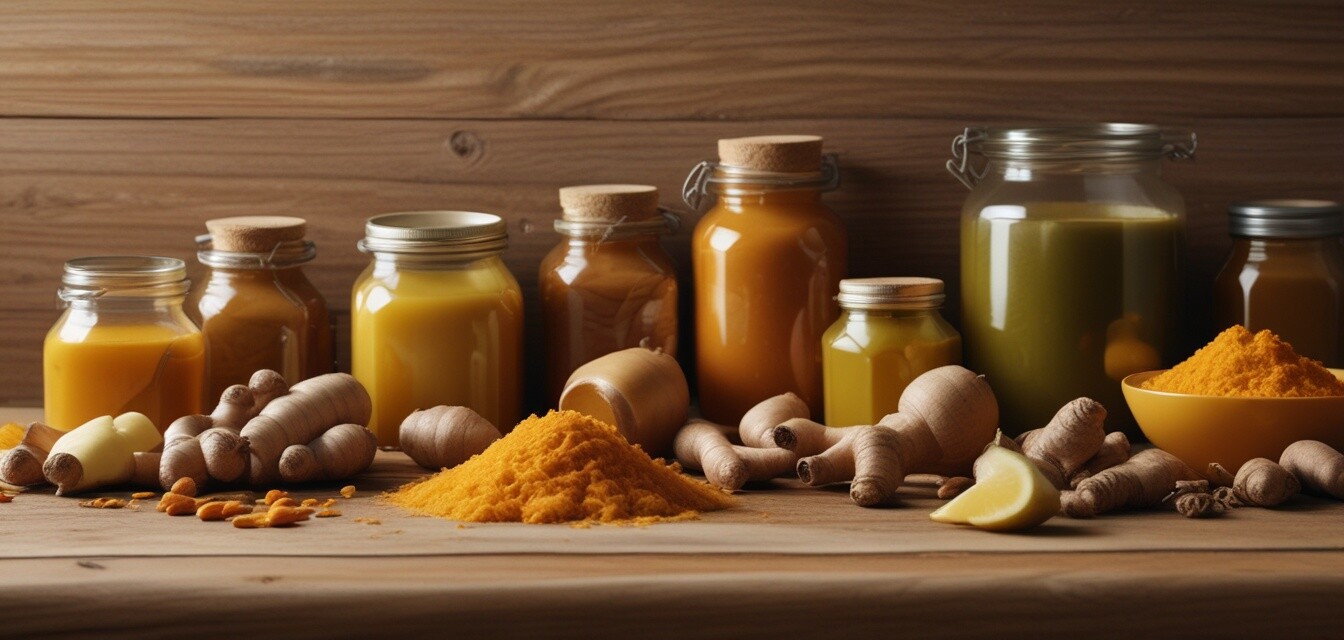
Seasonal Allergy Remedies from Your Kitchen
Key Takeaways
- Common kitchen ingredients can offer relief from seasonal allergy symptoms.
- Ingredients like honey, ginger, and turmeric may ease discomfort.
- Incorporating these ingredients into your diet can enhance overall wellness.
- Always check for allergies before using new remedies.
- Consult with a healthcare provider if symptoms persist.
Are you tired of sneezing your way through spring and summer? Seasonal allergies can be a constant nuisance, but relief might be closer than you think—right in your kitchen! This article explores how common kitchen ingredients can help alleviate allergy symptoms effectively. From honey to ginger, read on to discover how to utilize these kitchen staples for the best results.
Understanding Seasonal Allergies
Seasonal allergies, also known as hay fever, are primarily caused by allergens such as pollen and mold that are prevalent during certain times of the year. Symptoms can range from mild sneezing to more severe reactions. Knowing how to manage these symptoms can make a significant difference in your daily life.
Common Symptoms of Seasonal Allergies
- Runny or stuffy nose
- Itchy or watery eyes
- Sneezing
- Coughing
- Fatigue
Kitchen Ingredients That May Help
Many common ingredients found in your kitchen may help reduce allergy symptoms. Below is a list of some of the most effective options.
| Ingredient | Potential Benefits | How to Use |
|---|---|---|
| Honey | May help build immunity to local pollen | Add to tea or eat a spoonful daily |
| Ginger | Antihistamine properties | Make ginger tea or add to meals |
| Turmeric | May reduce inflammation | Add to soups or teas |
| Lemon | Rich in Vitamin C, may help boost immune function | Mix in water or teas |
| Garlic | May reduce mucus production | Add to meals for flavor |
How to Integrate These Ingredients into Your Daily Routine
Incorporating the above ingredients into your meals and beverages doesn't have to be complicated. Here are some practical tips:
Beginner's Tips
- Start your morning with a warm cup of ginger lemon tea.
- Use honey as a natural sweetener in yogurt or oatmeal.
- Add turmeric to your soups and stews for an antioxidant boost.
- Include garlic in your marinades for both flavor and health benefits.
- Keep lemon water handy throughout the day for hydration.
Simple Recipes for Allergy Relief
Ginger Lemon Tea
Ingredients:
- 1 cup hot water
- 1 teaspoon grated ginger
- 1 teaspoon honey
- Juice of half a lemon
Instructions: Combine all ingredients in a cup and stir well. Enjoy warm.
Turmeric Golden Milk
Ingredients:
- 1 cup milk (dairy or non-dairy)
- 1 teaspoon turmeric
- 1 teaspoon honey
- A pinch of cinnamon
Instructions: Heat the milk and mix in spices. Sweeten with honey to taste.
Consulting with Healthcare Providers
While kitchen remedies can be helpful, it’s essential to consult with a healthcare provider, especially if symptoms persist or worsen. They can offer guidance tailored to your specific situation.
Maintain a Clean Home Environment
In addition to using these kitchen remedies, maintaining a clean home can significantly reduce allergen exposure. Here are some tips for a cleaner environment:
- Regularly vacuum using an air purifier vacuum.
- Wash bedding in hot water weekly.
- Use allergen-proof covers for pillows and mattresses.
- Keep windows closed during high pollen seasons.
- Use air purifiers to reduce indoor allergens.
Conclusion
Seasonal allergies can be a significant hurdle, but with the right kitchen ingredients, you can find effective, natural ways to reduce your symptoms. Incorporate these simple tips into your routine, and remember that consistent dietary habits can lead to overall wellness. For more advice on managing seasonal allergies, check our guide on Tips and Best Practices.
Pros
- Utilizes common kitchen ingredients.
- Natural remedies can enhance well-being.
- Helpful for mild allergy symptoms.
- Easy to integrate into daily meals.
Cons
- May not work for everyone.
- Not a substitute for medical treatments.
- Requires consistency for noticeable effects.
- Some people may have allergies to certain ingredients.